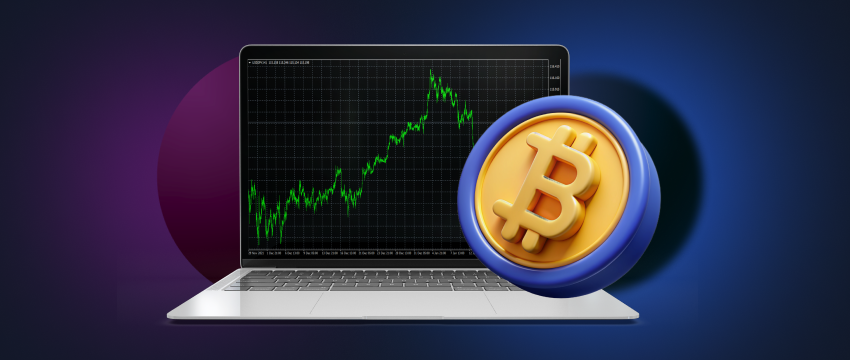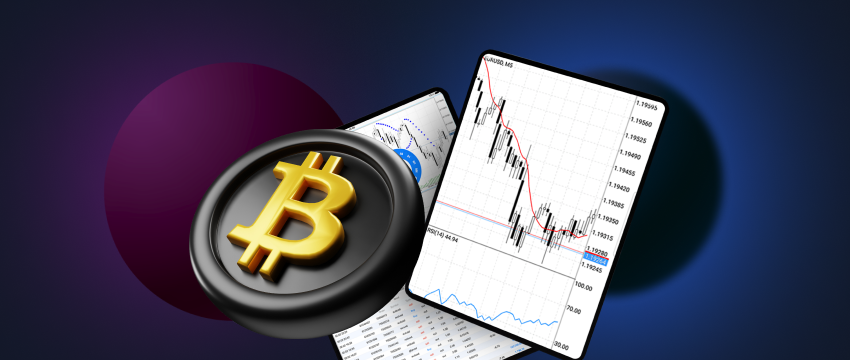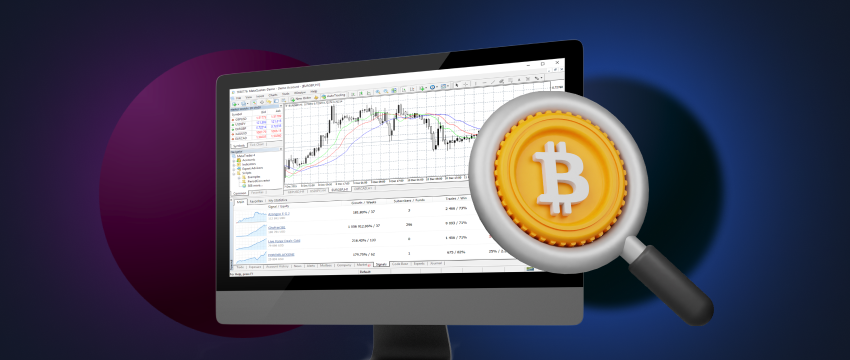CFD Bitcoin (BTC), the cryptocurrency that began the digital asset revolution, has recently gained widespread attention and investment interest. As digital currencies grow in popularity, various financial instruments and trading options, like CFDs (Contracts for Difference), have emerged.
In this article, we will explore the concept of CFDs and examine if Bitcoin falls under this classification.
What are CFDs?
Contracts for Difference (CFD) are financial derivatives that allow traders to speculate on the price movements across a range of assets such as stocks, commodities, currencies, indices and cryptocurrencies. CFDs do not involve ownership of the physical or securities. Instead, they involve a contract between a client and a broker with which they exchange the difference in the asset’s price from the contract’s opening to its closing.
Basically, a CFD is an agreement between two parties: the trader (buyer of the contract) and the broker (seller of the contract).
The contract states that the seller pays the buyer the difference between the current value of the underlying asset (such as saham, currencies, komoditi, indeks, etc.) and its value at the time of closing the contract. If the price of the asset increases, the seller pays the buyer the difference. If the price drops, the buyer pays the seller.
CFDs are leveraged products, allowing you to open a relatively large position with a small initial deposit. However, with leverage your potential profits or losses can exceed your initial deposit. Basically, CFDs provide traders with the opportunity to profit from both rising and falling markets.
Bitcoin vs. Bitcoin CFDs
Bitcoin operates as a digital currency that runs on a decentralised blockchain network. Its primary role is to function as an independent medium of exchange and payment. Bitcoin eliminates the need for third-party involvement in financial transactions.
Unlike traditional fiat currencies, Bitcoin operates on a decentralised ledger system known as blockchain. Market supply and demand determine its value, leading to significant price fluctuations similar to those of traditional commodities or currencies.
A CFD, on the other hand, is a financial contract tied to the value of an underlying asset, such as Bitcoin. When trading Bitcoin CFDs, you do not own the actual cryptocurrency but speculate on its price movements.
This involves entering a contract with a broker, where your potential profit or loss depends on the difference between the opening and closing prices of the Bitcoin CFD.

Key differences
Access to physical Bitcoin with CFDs:
When you own Bitcoin, you can use it for transactions or as a store of value in a digital wallet. A Bitcoin CFD, however, cannot be used for any real-world applications; it is purely a speculative instrument. Instead of owning the underlying asset, you speculate on its price movements through a contract with a forex broker.
Leverage and risk:
CFDs often provide leverage, allowing traders to control larger positions with a smaller initial investments. This magnifies both potential profits and losses, making it riskier than directly owning Bitcoin.
Regulations of CFD Bitcoin:
Bitcoin operates on a decentralized network, and governments or financial authorities do not directly regulate it. In contrast, brokers may offer CFDs as regulated financial instruments, following the laws and regulations of the jurisdictions where they operate.
Trading Flexibility:
Bitcoin CFDs offer 24/7 trading and increased liquidity compared to physical assets.
Why trade CFDs on Bitcoin?
Trading CFDs on Bitcoin can be appealing to investors and traders for several reasons.
Kepelbagaian:
Trading Bitcoin CFDs can help diversify your investment portfolio. Cryptocurrencies often have a low correlation with traditional financial markets like stocks and bonds. This means they can provide a hedge against market volatility.
CFD Bitcoin Leveraj:
CFDs allow the use of leverage, which means traders can control larger positions with a smaller amount of capital. This can magnify both profits and losses, offering potential for higher returns for experienced traders.
Go short:
CFDs allow traders to profit from both falling and rising prices. If you predict that Bitcoin’s price will decline, you can take a short position (sell) and potentially profit from the price drop.
Kecairan Tinggi:
Bitcoin CFDs can be traded 24/7, providing greater flexibility and improved liquidity compared to the physical asset. This allows traders to enter or exit positions at any time, including weekends and holidays, a flexibility that is not always available in traditional pasaran kewangan.
Keselamatan
Many CFD brokers operate under regulation, making CFD trading more secure compared to trading spot cryptocurrencies on unregulated crypto exchanges.

How Bitcoin CFD trading works
To trade Bitcoin, you choose a Bitcoin pair (e.g., BTC/USD) and decide whether you expect its price to rise (buy/long) or fall (sell/short). Specify position size and the amount of leverage you want to use.
Open the CFD position by placing a trade with a broker. Your potential profit or loss will be calculated based on the difference between the entry and exit prices of your position.
Risks of Crypto CFDs
Crypto CFDs offer lots of opportunities but also carry significant risks. For example, the cryptocurrency market is very volatile, leading to a higher potential for potential losses. While the rewards can be high, the market’s unpredictability can be challenging.
The use of leverage in CFD trading, can magnify your losses in such a volatile environment. So it is important to work with a reputable broker who can provide the necessary support and security.
What to think about before trading crypto CFDs
Before getting started with crypto CFD trading, it’s very important to choose a reliable broker with a good reputation, exceptional customer support, and educational resources. Access to 24/5 customer support where you can ask for help, get the answers to potential issues and gain an understanding of the risks is very important for your long-term success.
It is important to register with a broker that offers a wide range of resources and educational materials, but it’s equally important to invest time in educating yourself about the market. Spend time learning and make full use of your broker’s resources to optimise your chances of success. Before you place any trades, conduct thorough technical dan fundamental analysis and develop a solid trading strategy. Use a demo account to test your strategy under simulated trading conditions before you move to live trading.

In summary
Bitcoin (BTC) is a decentralised digital currency, which differs from CFDs which are financial derivatives. Financial derivatives allow traders to speculate on Bitcoin’s price movements without owning the actual asset. Both Bitcoin and Bitcoin CFDs offer opportunities for trading and investment, but they have different characteristics and purposes.
When choosing between owning Bitcoin directly or trading Bitcoin CFDs, traders and investors should carefully consider their goals, risk tolerance, and preferences. Recognising the differences between these two instruments is essential for better decision-making in the cryptocurrency and financial markets.
Amaran Risiko:
Cryptocurrency CFDs are an extremely high-risk, speculative investment and you may lose all your invested capital. Before trading, you need to ensure you fully understand the risks involved taking into consideration your level of experience and investment objectives. Seek independent advice, if necessary.
Penafian: This material is for general informational and educational purposes only and should not be considered investment advice or an investment recommendation. T4Trade is not responsible for any data provided by third parties referenced or hyperlinked in this communication.



